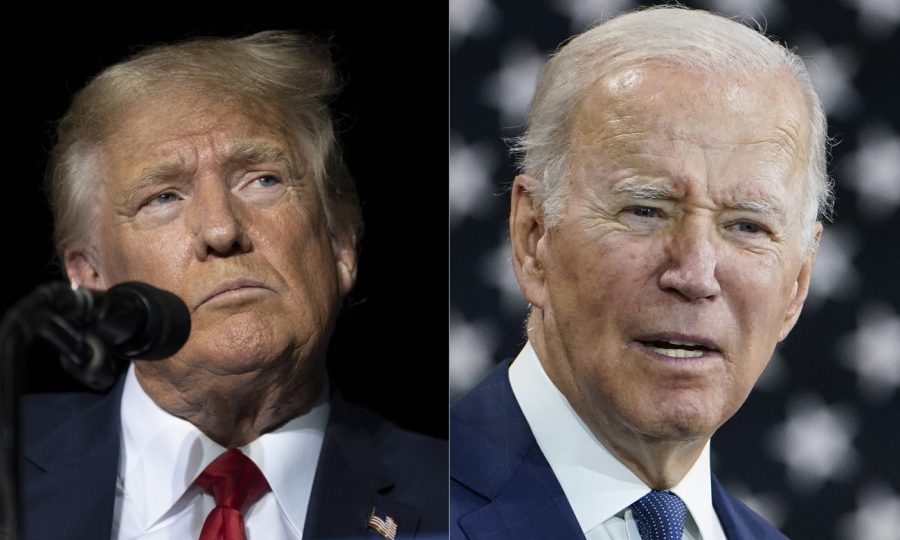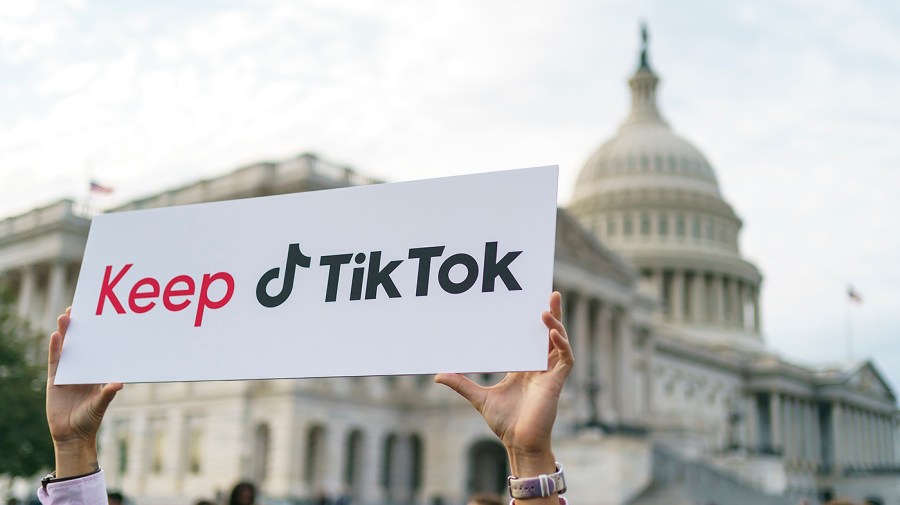How could the US ban TikTok?
Lawmakers are sounding alarms over TikTok and putting forward proposals that aim to ban the video-sharing app, but there’s no clear consensus over what path forward the U.S. government may pursue.
In addition to a litany of technical issues over how to enforce a ban on a social media platform, the unprecedented nature of the situation poses obstacles that complicate attempts to block the app, which is owned by China-based parent company ByteDance.
The nitty-gritty: How could a TikTok ban be enforced?
The growing political pressure, with calls to ban the app on both sides of the aisle but more broadly from Republicans, is rooted in allegations that TikTok poses national security threats. The company has strongly pushed back on the allegations.
Can the president do it himself?

To ban the app in the U.S., the president could try to do so through an executive order — which is the course of action former President Trump took in 2020 when TikTok’s U.S. political woes began.
Trump’s order, however, was thwarted through federal judges. President Biden ultimately withdrew Trump’s order and replaced it with a call for the Committee on Foreign Investment in the United States (CFIUS) to review the app.
“What has happened in the meantime, is that members of Congress now are pushing forward statutory reform that would allow the executive to have the authority that he didn’t have last time,” said Sarah Kreps, director of the Cornell Tech Policy Institute.
How Congress could ban TikTok

Some proposals — predominately from GOP lawmakers — specifically target TikTok. But those proposals have little support from Democrats and are unlikely to make it out of Democrat-controlled Senate.
The Restricting the Emergence of Security Threats that Risk Information and Communications Technology (RESTRICT) Act, a bipartisan bill introduced in the Senate earlier this month, is more likely to pass.
Inside the proposal: Senators introduce bipartisan bill to give president power to ban TikTok, other tech
The bill, which also has support from the White House, does not only target TikTok. Rather, it would give the administration the power to regulate or ultimately ban technology linked to foreign adversaries — including but not limited to China and TikTok.
“Executive orders are subject to a greater scrutiny, and there’s certainly the ability to challenge an executive order as an abuse of authority on a greater scale than the alternative, which would be an act of Congress,” said Michael Zweiback, a criminal defense attorney with experience in cybersecurity.
“I think if they’re going to do this … I think that that is probably the most prudent way for them to not only pass a ban, but also to make sure that it’s not subject to challenge downstream,” he added.
Legal challenges ahead
In any form, though, a ban on the popular video-sharing app would likely spur a legal challenge. Even if a challenge does not come from TikTok, outside groups have already been warning Congress against a ban, particularly over free speech concerns.
Congressional showdown: Four key takeaways as lawmakers grill TikTok CEO
Although the courts didn’t rule in favor of Trump’s ban, the changing political situation may make a difference in how the courts view one now, Kreps said. She said the three-year period since the proposed ban in 2020 was “pivotal” in terms of attitudes in the U.S. toward China becoming “extremely skeptical,” as well as the country now having a “polarizing” Trump out of office.
“The politics of this look considerably different this time and historically, the courts have been loath to step on executive powers when it comes to national security,” Kreps said.
CFIUS: The secretive weapon

As Congress ramps up scrutiny of TikTok, the Biden administration’s CFIUS review is still ongoing. Few details have emerged since it began, but TikTok confirmed earlier this month that the Biden administration threatened to ban the app if ByteDance doesn’t sell its stake.
CFIUS is an interagency committee with the power to review certain transactions involving foreign investments in the U.S. It has the power to push foreign companies to sell their holdings of U.S. companies and block potential foreign acquisitions of American firms.
For sale or forsaken?: Biden’s latest move against TikTok raises questions about ban, owner sale
Adam Kovacevich, CEO of the tech industry group Chamber of Progress, said he thinks a demand from the administration for ByteDance to divest TikTok is still the likeliest outcome. Chamber of Progress names Apple, Amazon, Google and Meta among its corporate partners.
He likened it to the sale of dating app Grindr in March 2020 from its Chinese owner after the government reportedly raised concerns following a CFIUS review.
“I don’t think the RESTRICT Act is necessary to justify their divestiture demand; I think they have all the authority they need under existing law to demand the app be sold to a US company, and again, the Grindr case being the template,” Kovacevich said.
Kreps, however, said that ByteDance is unlikely to sell its stake given fierce opposition from the Chinese government.
A spokesperson for China’s Ministry of Commerce said last week that China will “resolutely oppose” a forced sale of TikTok from ByteDance.
Although a ban isn’t any party’s “first choice,” Kreps noted that it may be the only remaining option.
“I don’t see common ground when it comes to a negotiation of an outcome other than a ban,” she said.
Copyright 2023 Nexstar Media Inc. All rights reserved. This material may not be published, broadcast, rewritten, or redistributed.

